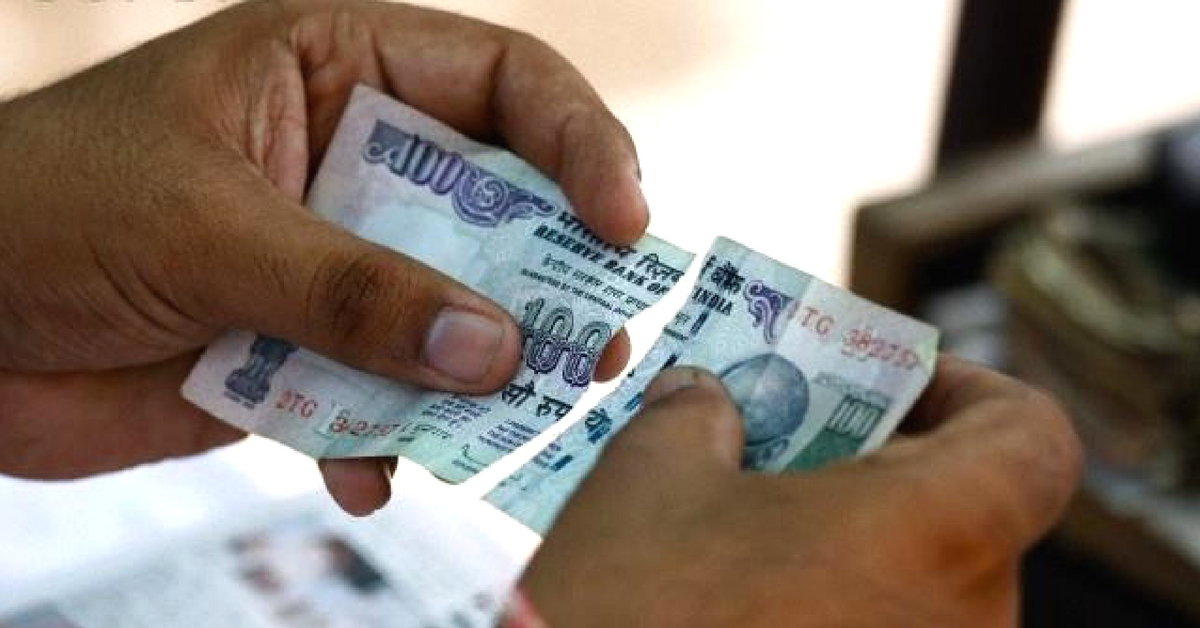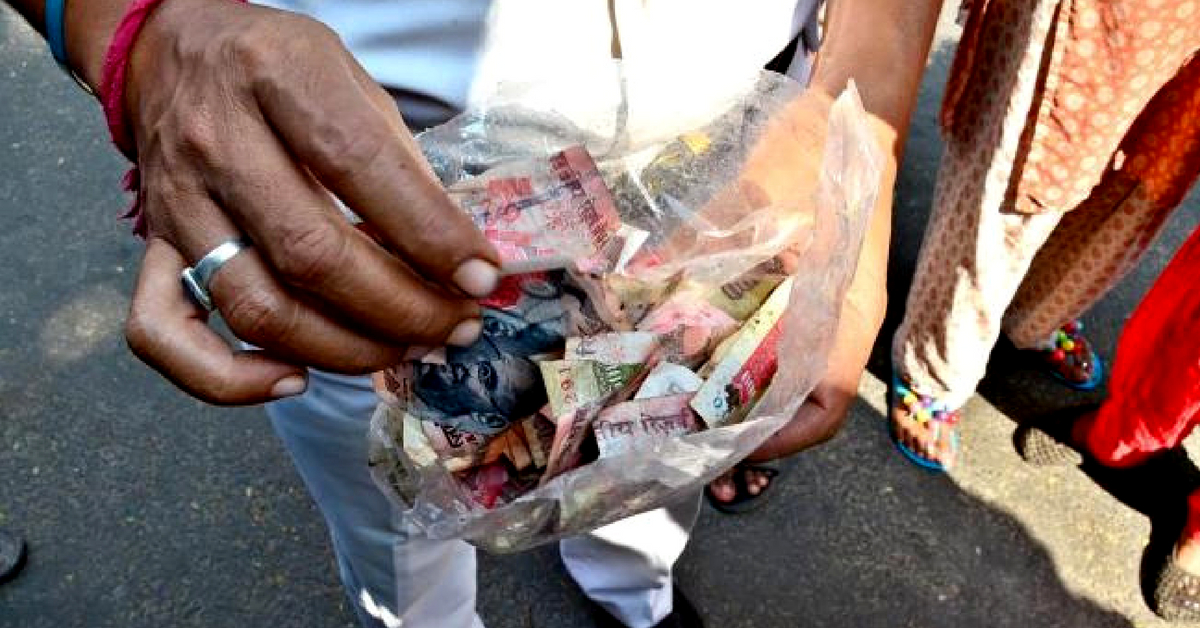Got Soiled Currency Notes? Here’s How You Can Exchange Them in Any Bank
However, before you take your soiled notes for exchange or deposition, do have a look at the kind of notes that this facility does not accept.

Isn’t it frustrating when a shopkeeper hands you a torn or a soiled note, and you only realise it when it’s too late? Or when your notes get wet and crumpled, and cannot be used again? Well, you don’t need to worry anymore.
According to the Reserve Bank of India (RBI), ” A ‘soiled note’ means a note that has become dirty due to normal wear and tear and also includes a two-piece note pasted together wherein both the pieces presented belong to the same note and form the entire note with no essential feature missing.”
Here’s how you can exchange or utilise a soiled or torn note, of any legal denomination across India.

1. According to the RBI, every bank is liable to accept soiled, mutilated or imperfect notes. So you can walk to your nearest bank to exchange your dirty notes for fresh, good quality notes.
2. This facility will not cost you any fee. The RBI has also instructed all banks to bear a notice saying ” SOILED/MUTILATED NOTES ARE ACCEPTED AND EXCHANGED HERE” for your convenience. So whether you are a customer of that bank or not, you can exchange your imperfect notes, free of charge at the branch of any bank.
3. You can even pay your government dues, like the water bill, electricity bill, house tax or sewer tax at a bank using these notes.
4. You can deposit the notes in your account, by approaching the nearest branch of your bank. These notes, as per RBI guidelines, cannot be re-issued to the public. Instead, they are deposited in currency chests to be transmitted to RBI offices “as soiled note remittances for further processing.”
5. In case you want to exchange up to 5 currency notes, and the non-chest branch you approach is not able to do so, you can still deposit them in exchange of a receipt with the probable date of exchange written on it. The notes will then be sent to a currency chest branch linked with the non-chest branch for adjudication. The probable date of payment will be within 30 days of the deposit.
You may also like: Don’t Trust Online Transactions? These 10 New RBI Rules Will Make Them Safer!
However, before you take your soiled notes for exchange or deposition, do have a look at the kind of notes that this facility does not accept.

1. Extremely brittle, burnt, charred stuck up notes:
According to RBI, “Notes which have turned extremely brittle or are badly burnt, charred or inseparably stuck up together and, therefore, cannot withstand normal handling, shall not be accepted by the bank branches for exchange. Instead, the holders may be advised to tender these notes to the concerned Issue Office where they will be adjudicated under a Special Procedure.”
2. Slogans or political messages on notes:
Under Rule 6(3)(iii) of Reserve Bank of India (Note Refund) Rules, 2009, any note that bears slogans or a message of political nature on it ceases to be legal tender. Thus, exchange or deposition of such notes is not possible, and they will be rejected at the bank counter.
3. Don’t cut your notes deliberately.
Now, the guidelines accept that it is quite tough to define a deliberate cut and unintentional mutilation of notes. However, a close examination, RBI says, will clarify this doubt. If the presiding officer at the bank suspects that your note/notes are deliberately cut, they will be rejected for exchange or deposit.
You may also like: RBI Ends Letters of Undertaking: What Are They And Why You Should Care
If you are caught trying to exchange deliberately cut notes, and especially if they are in large numbers, your name, the number of notes tendered and their denominations will be reported to the Deputy or General Manager, Issue department under which the bank branch falls. The matter will also be reported to the local police station.
(Edited by Gayatri Mishra)
Like this story? Or have something to share?
Write to us: [email protected]
Connect with us on Facebook and Twitter.
NEW: Click here to get positive news on WhatsApp!
If you found our stories insightful, informative, or even just enjoyable, we invite you to consider making a voluntary payment to support the work we do at The Better India. Your contribution helps us continue producing quality content that educates, inspires, and drives positive change.
Choose one of the payment options below for your contribution-
By paying for the stories you value, you directly contribute to sustaining our efforts focused on making a difference in the world. Together, let’s ensure that impactful stories continue to be told and shared, enriching lives and communities alike.
Thank you for your support. Here are some frequently asked questions you might find helpful to know why you are contributing?


This story made me
-
97
-
121
-
89
-
167











